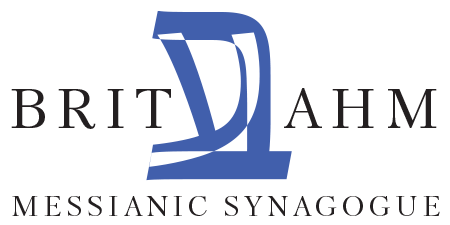Rosh Hashanah occurs on the first and second days of Tishri. In Hebrew, Rosh Hashanah means, literally, "head of the year" or "first of the year." Rosh Hashanah is commonly known as the Jewish New Year.
The purpose of this holy day is summed up in one word -- regathering, since the fall holidays call us to regather to a pure faith in G-D. Rosh Hashanah has come to represent the day of repentance. It is the day when the people of Israel take stock of their spiritual condition and make the necessary changes to ensure that the upcoming new year will be pleasing to G-D.
The most noticeable custom is the shofar, the trumpet mentioned in the Biblical text. The shofar is sounded in the synagogue with four different notes: tekia (blast), shevarim (broken notes), teruah (alarm) and tekia gedolah (the great blast). These notes provide some spiritual lessons. Rabbis observed that the shofar was used in the ancient world to hail a king. So, too, at Rosh HaShanah, all Israel is said to appear before the King of Kings in anticipation of personal judgement. Also, often in the Bible, the shofar was sounded to gather the troops together for battle (see Joshua 6). In this case, the shofar is our "wake-up call," an alarm to call us to our appointed times.
On the first day of Rosh Hashanah, families traditionally proceed to a body of running water, preferably one containing fish, and symbolically cast off their sins. The Tashlich ceremony includes reading the source passage for the practice, the last verses from the prophet Micah (7:19), “He will take us back in love; He will cover up our iniquities. You will cast all their sins into the depths of the sea.” Selections from Psalms, particularly Psalm 118 and Psalm 130, along with supplications and a kabbalistic prayer hoping God will treat Israel with mercy, are parts of Tashlich in various communities.
Dates:
Sunset of September 11th through nightfall of September 12th, 2026
No Work Days:
Sunset of September 11th through nightfall of September 12th, 2026
Services:
Erev Yom Teruah Service
September 11th , 2026 at 6 pm
Yom Teruah Service:
September 12th, 2026 at 10 am
Tashlich Service:
TBA (Bayview Park)
Future Dates:
Sunset of October 1st through nightfall of October 2nd, 2027
Sunset of September 20th through nightfall of September 21st, 2028
Sunset of September 9th through nightfall of September 10th, 2029
Sunset of September 27th through nightfall of September 28th, 2030
Biblical References:
“Adonai spoke to Moses saying: ‘Speak to Bnei-Yisrael, saying: In the seventh month, on the first day of the month, you are to have a Shabbat rest, a memorial of blowing (shofar), a holy convocation. You are to do no regular work, and you are to present an offering made by fire to Adonai.’” Leviticus 23:23-25 TLV
“On the first day of the seventh month you are to have a sacred assembly. You are to do no laborious work. It is for you a day for sounding the shofar.” Numbers 29:1 TLV
